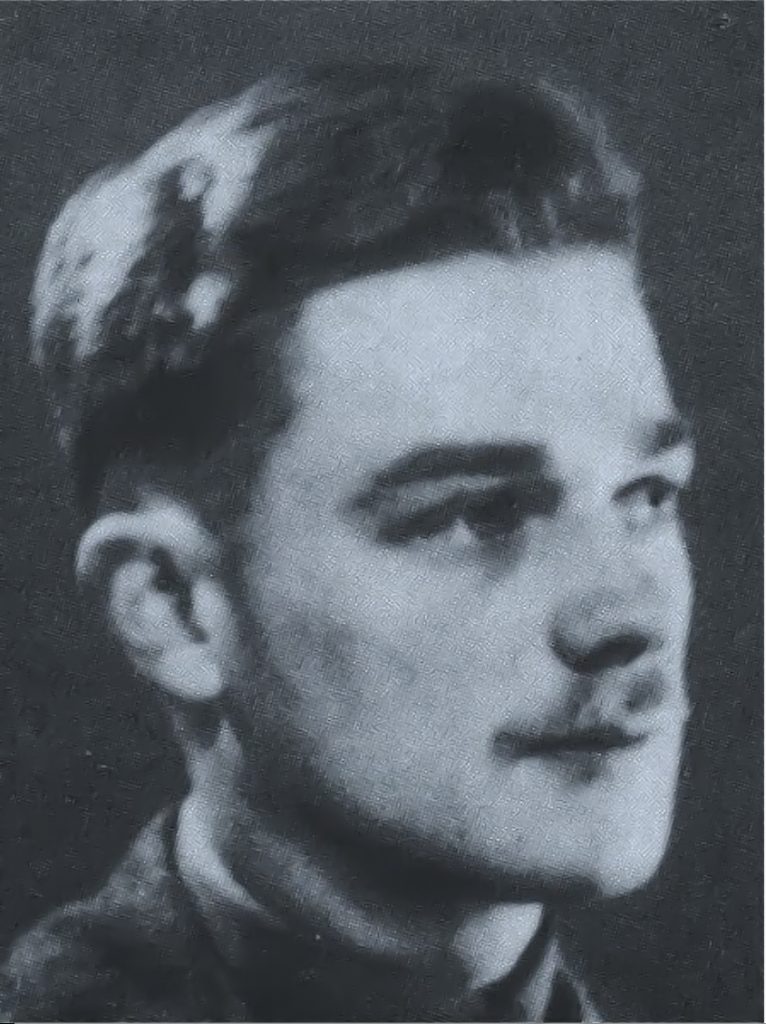From ‘A Bridge Too Far’ to ‘Watership Down’

A wartime heritage exhibition at Caythorpe is commemorating the 75th anniversary of South Kesteven’s role in one of the most legendary operations of World War II – the battle for the bridges near Arnhem.
The Arnhem75 exhibition in St Vincent’s Church, opening on Friday 13 September, notes the special bond forged between Airborne Divisional Signals and Caythorpe, with the village and church still regarded as their spiritual home.
It also highlights how men who fought in Operation Market Garden were the inspiration for a universally acclaimed novel – Watership Down.
In September 1944, units of the 1st Airborne Division, with their distinctive maroon berets, were flown by American C-47 aircraft from Barkston Heath and Saltby airfields after training locally. Nearly every village had direction signs displaying the Pegasus logo.
They were flying into one of the bloodiest conflicts of the war, with the struggle to seize the bridge at Arnhem immortalised in the film ‘A Bridge Too Far’.
Artefacts loaned by the 1st Airborne Division museum at Duxford’s Imperial War Museum, including a supplies pannier and parachute, will be part of the exhibition, open from 13 – 22 September as part of the county’s Heritage Open Days.

Extracts from ‘The Days Gone By’, the autobiography of Watership Down author Richard Adams, show how his tale of a beleaguered band of rabbits was based on the characters and exploits of fellow officers of the Royal Army Service Corps 250th Company.
Lieutenant Richard Adams reported for duty at 1st Airborne Division’s Fulbeck HQ early in 1944. In 1972, 28 years later, his comrades took on new life as characters in Watership Down.
Adams wrote of his fellow officers; “There were about 12 or 13 altogether and they composed a very strong team, much stronger than any I had yet come across. Later, from my memory they provided the idea for Hazel and his rabbits in Watership Down.
By this I do not mean that each of Hazel’s rabbits corresponds to a particular officer in 250 Company. Certainly the idea of the wandering, endangered and interdependent band, individually different yet mutually reliant, came from my experience of the company. Out of all of us I think, there were two direct parallels.
Hazel is John Gifford and Bigwig is Paddy Kavanagh.”
Major John Gifford, commanding 250th Company, shaped the character of Hazel, the Watership Down rabbits’ leader who guided the group through their difficulties.

Captain Paddy Kavanagh inspired the character of the brave Bigwig – the strongest rabbit and a courageous fighter. Captain Kavanagh died holding off enemy fire while his platoon escaped and is buried in the divisional cemetery at Oosterbeck.
The exhibition is funded by a Heritage Alive grant from InvestSK, South Kesteven District Council’s economic growth and regeneration company.
Claire Saunders, InvestSK’s Heritage Regeneration Officer, commented: “The story of the commitment made by men of the 1st Airborne Division, and the hospitality of the people in the area, is something that we should be proud of and commemorate. The connection between their efforts and inspiration of Watership Down brings their endeavours even more to life. That’s exactly why we called our programme ‘Heritage Alive’, because heritage is important and relevant to our everyday lives.”
The exhibition has also been supported by Paradata, the living museum of airborne forces.
Its curator Jon Baker said: “The stories of 1st Airborne Division and South Lincolnshire are deeply connected and we are happy to support and highlight this important chapter in airborne forces heritage.”
The exhibition runs from 13th – 22nd September at St Vincent’s church, Caythorpe, which will be open and manned between 10am and 4pm each day.




Leave a Reply
You must be logged in to post a comment.